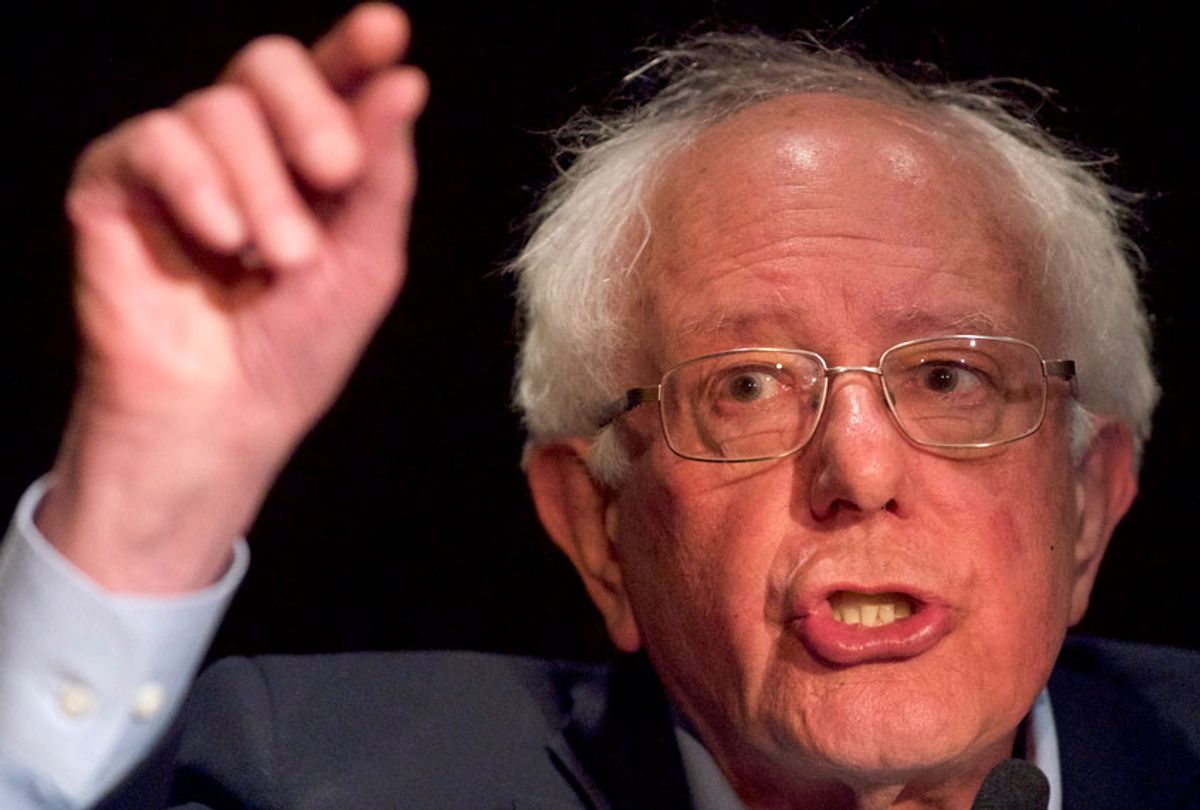Sen. Bernie Sanders, I-Vt., told CNN during an interview on Sunday that he believes he has a "very strong chance" of being the Democratic presidential nominee in 2020 — and, eventually, of defeating President Donald Trump.
"What I think is that four years ago, you know, there were only two of us in the race, and we split the vote about 50% each. This time we've got a whole lot of candidates and I don't think anybody is going to reach 50%," Sanders told CNN's Dana Bash during an appearance on "State of the Union" on Sunday. His comments referred to a recent survey which found that former Vice President Joe Biden is ahead in the crucial Iowa caucus with 24 percent of the vote. Sanders is running in second place with 16 percent of the vote.
Sanders argued that he has an "excellent" chance of winning in the Iowa caucus next year but did not go so far as to say that he would win more half of the votes that will be case.
"We're not going to get 50% of the vote in Iowa. I don't think anybody will," Sanders told Bash.
The Vermont senator added, "I think we have a very strong chance of being the candidate who will defeat the worst president in the modern history of this country, Donald Trump."
There is considerable question about whether Sanders could win the Democratic nomination or the general election, given his identification with the "democratic socialist" label. Speaking to Salon in April, Kyle Kondik — the managing editor of Sabato’s Crystal Ball — explained that "some of Sanders’ support is probably a function of name ID, and it may not be solid." He added, though, that Sanders does "have a solid base of 20 to 25 percent, which is not nothing in a big field."
He continued, "In a sense, that’s how Donald Trump won in 2016. In a big field, he had a floor of support almost everywhere, and that floor rose as other candidates dropped out."
Will Marshall, president and founder of the Progressive Policy Institute, a center-left think tank, expressed the concern that Sanders would not be electable in crucial swing states.
"I do think he got a lot of support [in 2016] that was in protest of the Democratic establishment, perhaps Hillary Clinton personally. The question is whether Bernie as a free-standing proposition is as powerful as Bernie as a place to lodge a protest against the things you don't like about your party. So we'll see," Marshall told Salon in April.
He added, "But here's the thing. The election is going to be determined, most likely, in the upper Midwest, in the same battleground states that Donald Trump won last time and shocked Hillary Clinton. That means Pennsylvania, Wisconsin, Ohio, Michigan. You could also throw in Iowa. So does Bernie Sanders expand the map for Democrats in these places? Does he appeal to mainstream voters? And I don't see any evidence of it. I think that's the great challenge for Bernie Sanders and I'm not sure how he surmounts it."

Shares